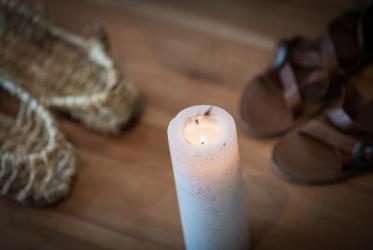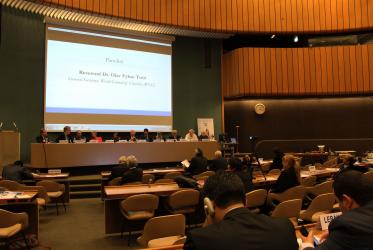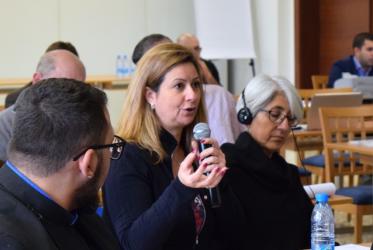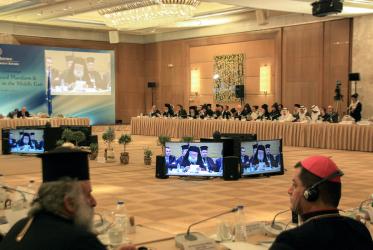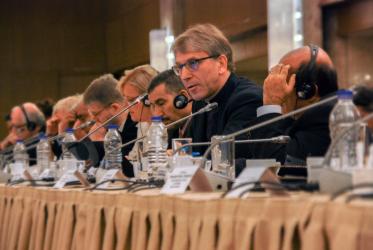Displaying 21 - 40 of 52
20 March 2019
“Love will find a way”
23 August 2018
Christian and Muslim promote spiritual solidarity
14 June 2017
Islam and Christianity: finding the common ground
16 March 2017
In Lebanon, refugees face hardship - but find hope
16 March 2017
The child in the manger and the war in Syria
22 December 2016
Strong bridges needed more than ever
21 December 2016
Churches’ diaconal action in the Middle East analyzed
01 December 2016
Common prayer in Geneva responds to acts of violence
16 November 2015
WCC strongly condemned terror attacks
14 November 2015
Beirut bombings stir churches’ and WCC condemnations
13 November 2015
International conference addresses challenges in the Middle East
22 October 2015
Local and global work saves lives
22 October 2015
